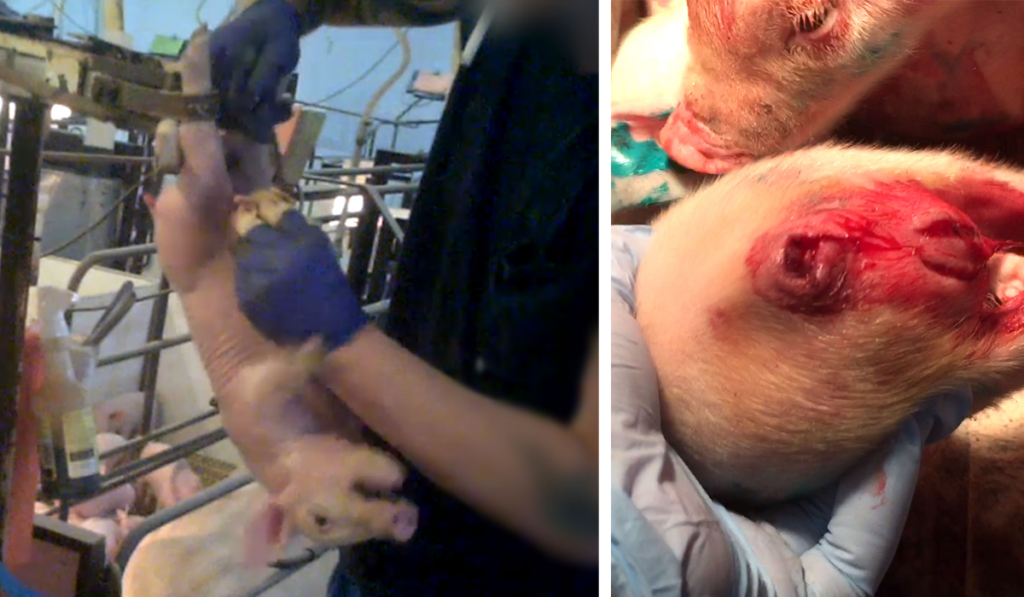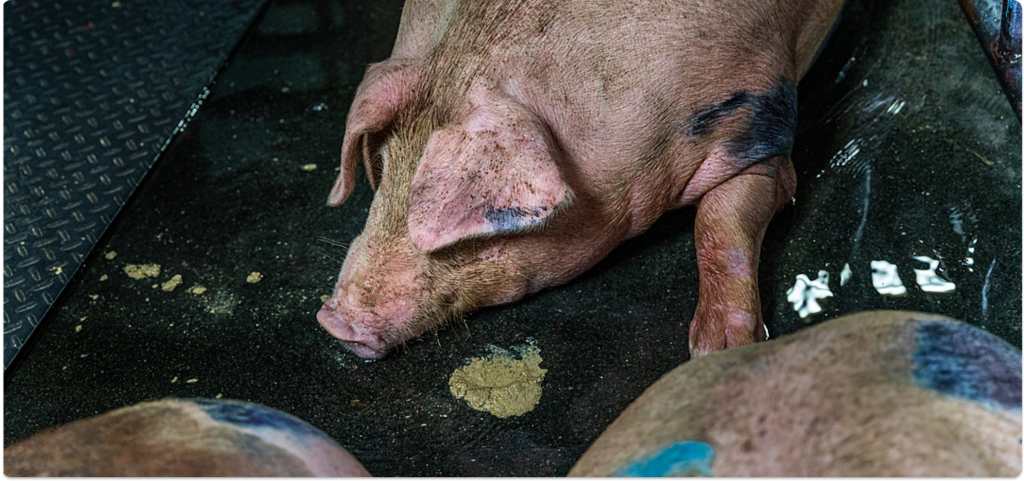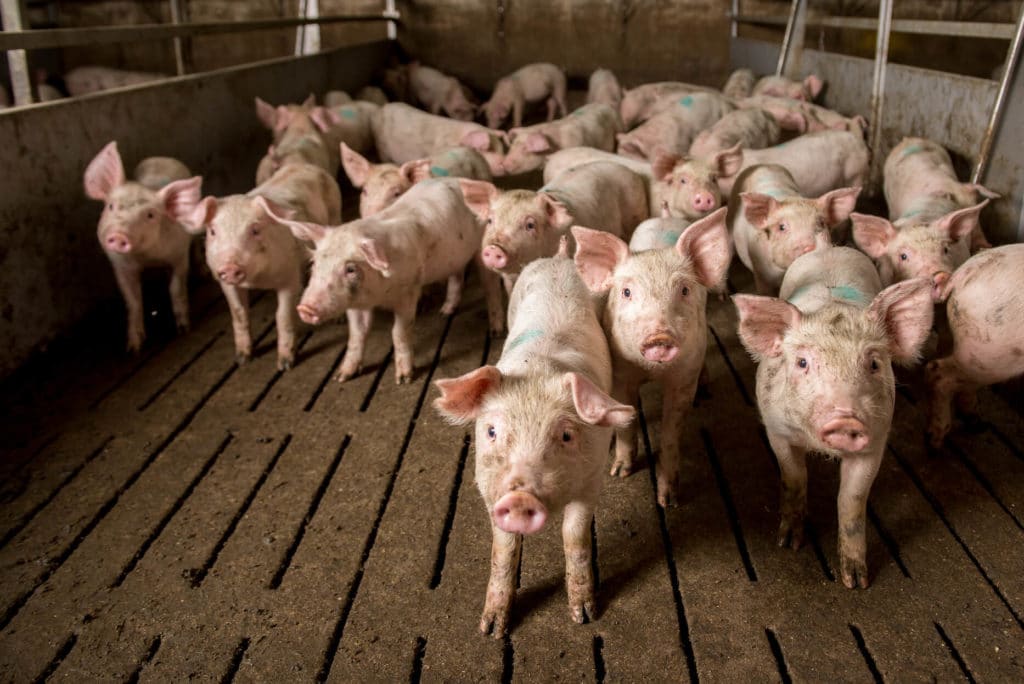Life for baby pigs in the meat industry is nothing short of a nightmare. Behind the façade of happy farm imagery meat companies use on their packaging lies a harsh, distressing existence for these innocent animals. In industrial farms, baby pigs face unimaginable suffering. Here’s a closer look at their tragic fates.
From Birth to Confinement
Under normal circumstances, pigs are doting mothers who build a nest for their babies and even “sing” to them while nursing. But pigs raised for meat are born into a world that’s anything but nurturing. Pregnant pigs are confined to gestation crates, small cages that restrict their movement and prevent them from engaging in vital natural behaviors. These crates are so narrow that the animals can’t even turn around or lie down comfortably.
Before giving birth, the pigs are moved to farrowing crates where they will have their babies and nurse them through metal bars. The crates are so small that the mothers can’t nurture their babies as they normally would. The bond between mother and piglet is crucial for the animals’ emotional and physical development, but the meat industry prioritizes profit and efficiency over welfare.
The Harsh Reality of Early Life
In these crowded conditions, piglets face a host of challenges. They are typically subjected to painful procedures without pain relief, such as tail docking, teeth clipping or grinding, and castration. Farmers perform these mutilations to decrease injuries resulting from their unnatural environments and to make the animals easier to handle, but they cause significant distress and pain.


Piglets are also at risk of diseases due to unsanitary conditions and lack of proper veterinary care. Many piglets die before they reach maturity. Babies who are growing too slowly or are too sick or weak are often killed. Some are slammed headfirst into the ground. This is known as “thumping” and is completely legal in factory farms.
When piglets are about three weeks old, farmers abruptly separate them from their mothers, causing severe stress and anxiety. They will spend the rest of their time at the farm in “grower barns” alongside hundreds or even thousands of other pigs.
A Horrific End to a Pain-Filled Existence
In natural conditions, pigs can live for 10 to 15 years, but factory-farmed pigs who survive the harsh conditions are sent to slaughter after just six months of life—when they’re still juveniles.


The confused and frightened animals are prodded onto crowded trucks and subjected to long journeys in stressful conditions and often extreme temperatures. Many arrive at the slaughterhouse too sick, exhausted, or injured to stand or walk, leading to even more suffering. They are known as “downed” pigs, and undercover footage has shown them languishing for prolonged periods and being kicked, prodded to move, and lifted with machines while fully conscious.
At the slaughterhouse, pigs face a terrifying and brutal end. The slaughter process is designed for efficiency, not compassion. Because workers often must move quickly, many pigs aren’t stunned properly and suffer extreme stress and pain in their final moments.
Take Action!
The plight of pigs in the meat industry is a stark reminder of the urgent need for change. The best way we can make a difference for baby pigs and all animals is to choose more plant-based foods. We must also demand better protections for the millions of pigs trapped at factory farms.


Earlier this year, the Pigs and Public Health Act (PPHA) was introduced in the House of Representatives. This groundbreaking bill aims to reduce the number of downed pigs in the food system by setting standards for care in farms and during transport. It also seeks to protect downed pigs who arrive at slaughterhouses. Backed by Mercy For Animals and the ASPCA, the PPHA would spare hundreds of thousands of animals unnecessary pain and suffering.
Pigs and other animals are counting on compassionate people to act now! Urge your representatives to support the PPHA to help get protections for downed pigs into the upcoming Farm Bill and make our nation’s food system safer.
